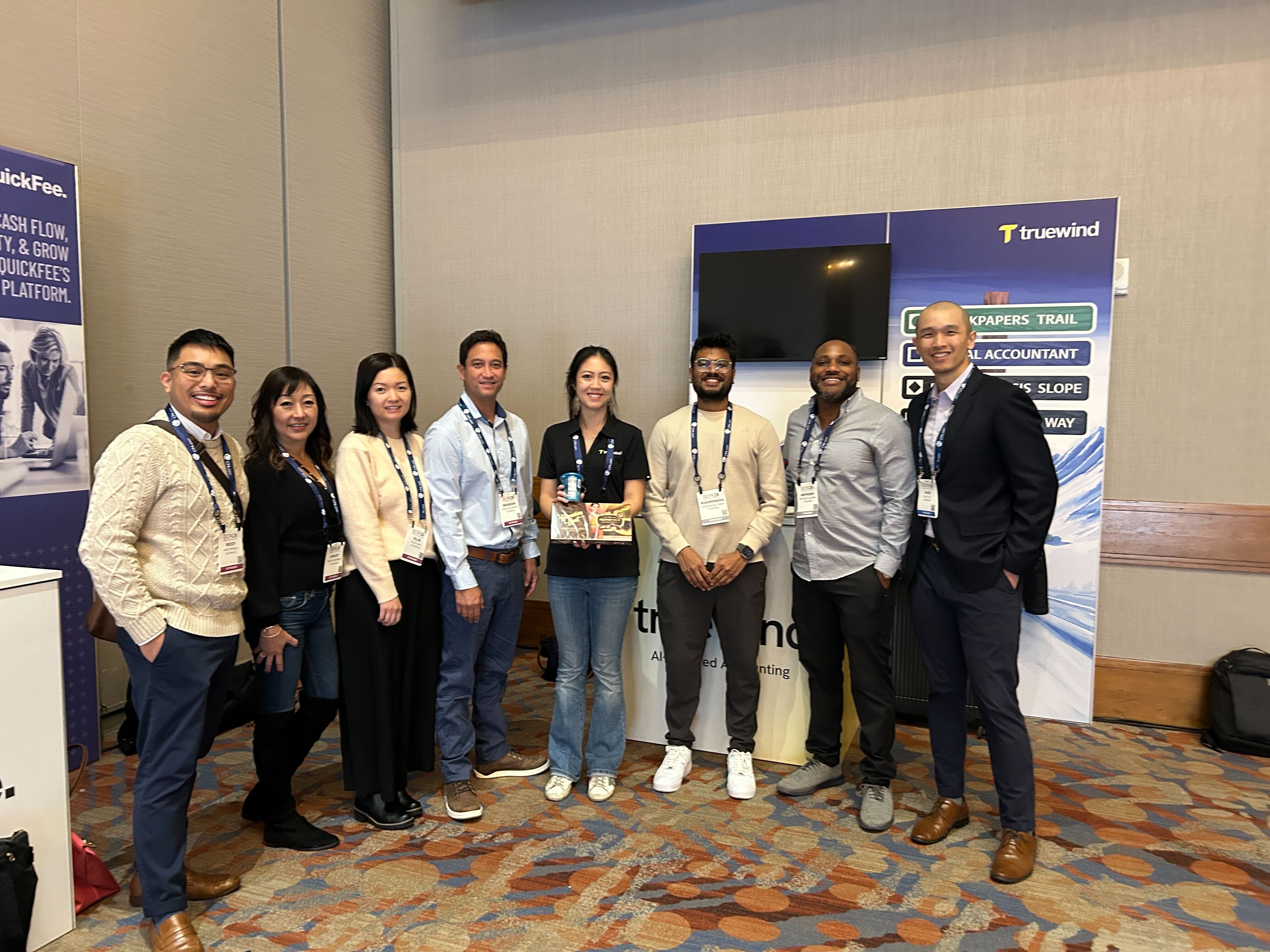Blog
Our Latest Articles
Follow the latest developments of artificial intelligence on the field of accounting
Blog
Our Latest Articles
Follow the latest developments of artificial intelligence on the field of accounting
All
Company News
Product
Accounting
Customer Stories
Our Team
FAQ
Frequently Asked Questions
Your success is our top priority. Our dedicated support team is here to assist you every step of the way
FAQ
Frequently Asked Questions
Your success is our top priority. Our dedicated support team is here to assist you every step of the way
FAQ
Frequently Asked Questions
Your success is our top priority. Our dedicated support team is here to assist you every step of the way
I'm an accounting firm, what does Truewind do for me?
A digital accountant, fully integrated with your existing systems. Truewind is an AI accountant that classifies transactions, finds supporting documentation, and more.
I'm an enterprise, what does Truewind do for me?
Use our AI-powered close management platform automates routine tasks and finishes your monthly close with time to spare. Find API solutions to power your AI applications.
I'm a startup / SMB, what does Truewind do for me?
End-to-end accounting, taxes, and CFO services. Through a combination of our technology and CPA team, we consistently deliver world-class support.
What does a partnership with Truewind look like?
By partnering together, we will define generative Al use cases to accelerate your business. Integrate Al into your operations and redefine your financial processes.
What integrations does Truewind support?
Truewind integrates with all accounting systems, including QuickBooks Online, NetSuite, Sage Intacct, Xero, and more. We sync your Bill.com and excel work papers too.
How does Truewind ensure my financial data is protected?
Truewind is SOC 2 certified. Enterprise-grade security is build into every layer of the Truewind platform. Data security and privacy are our highest priority.
I'm an accounting firm, what does Truewind do for me?
A digital accountant, fully integrated with your existing systems. Truewind is an AI accountant that classifies transactions, finds supporting documentation, and more.
I'm an enterprise, what does Truewind do for me?
Use our AI-powered close management platform automates routine tasks and finishes your monthly close with time to spare. Find API solutions to power your AI applications.
I'm a startup / SMB, what does Truewind do for me?
End-to-end accounting, taxes, and CFO services. Through a combination of our technology and CPA team, we consistently deliver world-class support.
What does a partnership with Truewind look like?
By partnering together, we will define generative Al use cases to accelerate your business. Integrate Al into your operations and redefine your financial processes.
What integrations does Truewind support?
Truewind integrates with all accounting systems, including QuickBooks Online, NetSuite, Sage Intacct, Xero, and more. We sync your Bill.com and excel work papers too.
How does Truewind ensure my financial data is protected?
Truewind is SOC 2 certified. Enterprise-grade security is build into every layer of the Truewind platform. Data security and privacy are our highest priority.
I'm an accounting firm, what does Truewind do for me?
A digital accountant, fully integrated with your existing systems. Truewind is an AI accountant that classifies transactions, finds supporting documentation, and more.
I'm an enterprise, what does Truewind do for me?
Use our AI-powered close management platform automates routine tasks and finishes your monthly close with time to spare. Find API solutions to power your AI applications.
I'm a startup / SMB, what does Truewind do for me?
End-to-end accounting, taxes, and CFO services. Through a combination of our technology and CPA team, we consistently deliver world-class support.
What does a partnership with Truewind look like?
By partnering together, we will define generative Al use cases to accelerate your business. Integrate Al into your operations and redefine your financial processes.
What integrations does Truewind support?
Truewind integrates with all accounting systems, including QuickBooks Online, NetSuite, Sage Intacct, Xero, and more. We sync your Bill.com and excel work papers too.
How does Truewind ensure my financial data is protected?
Truewind is SOC 2 certified. Enterprise-grade security is build into every layer of the Truewind platform. Data security and privacy are our highest priority.















